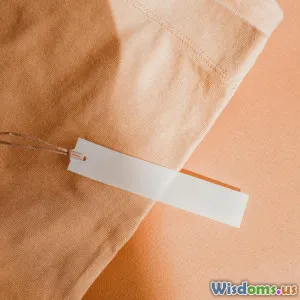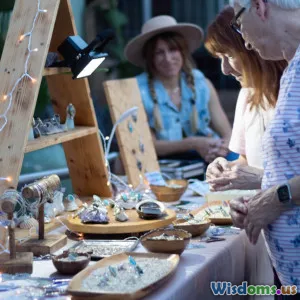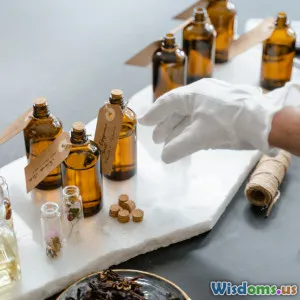
Can Handmade Soaps Really Compete With Commercial Brands
3 min read Explore how handmade soaps measure up against commercial brands in quality, sustainability, and skin health. (0 Reviews)
Can Handmade Soaps Really Compete With Commercial Brands?
In an age dominated by mass production and synthetic additives, the charm and authenticity of handmade products offer a compelling alternative. Among these, handmade soaps have carved a niche noteworthy enough to question: Can handmade soaps really compete with commercial brands? This article takes a deep dive into the debate, analyzing quality, health benefits, sustainability, and consumer trends to provide a comprehensive view.
The Origins: Defining Handmade vs Commercial Soaps
To truly compare, one must first understand the fundamental differences. Commercial soaps are typically mass-produced using factory processes that emphasize cost-efficiency. Ingredients often include synthetic detergents, preservatives, and fragrances designed to extend shelf life and appeal broadly.
Handmade soaps, on the other hand, are crafted on smaller scales using traditional methods like cold or hot process saponification. They emphasize natural ingredients such as vegetable oils, essential oils, and botanicals.
Quality and Ingredient Transparency
Ingredient sourcing
Commercial soaps often rely on cheaper raw materials, including sodium lauryl sulfate (SLS) or other surfactants that can be harsh on sensitive skin. In contrast, handmade soaps are praised for their transparency; makers usually provide full ingredient lists and source ethically. For instance, many artisans use organic coconut oil, shea butter, or olive oil—ingredients renowned for their skin benefits.
As Dr. Jane Barrett, Dermatologist, points out: “Consumers opting for handmade soaps often experience fewer irritations, chiefly because they avoid synthetic chemicals linked to dryness and eczema.”
Additive avoidance
Preservatives and artificial fragrances common in commercial brands can provoke allergic reactions in sensitive users. Handmade soaps commonly use essential oils or natural extracts, offering not only fragrance but therapeutic properties like calming lavender or invigorating peppermint.
Sustainability and Environmental Impact
Packaging
Large commercial brands frequently utilize plastic-heavy packaging, contributing significantly to landfill waste. Handmade soaps often come wrapped in biodegradable paper or reusable tins. For example, Lush, a leading handmade soap company, has pioneered
DIY & Handmade
Rate the Post
User Reviews
Popular Posts




















